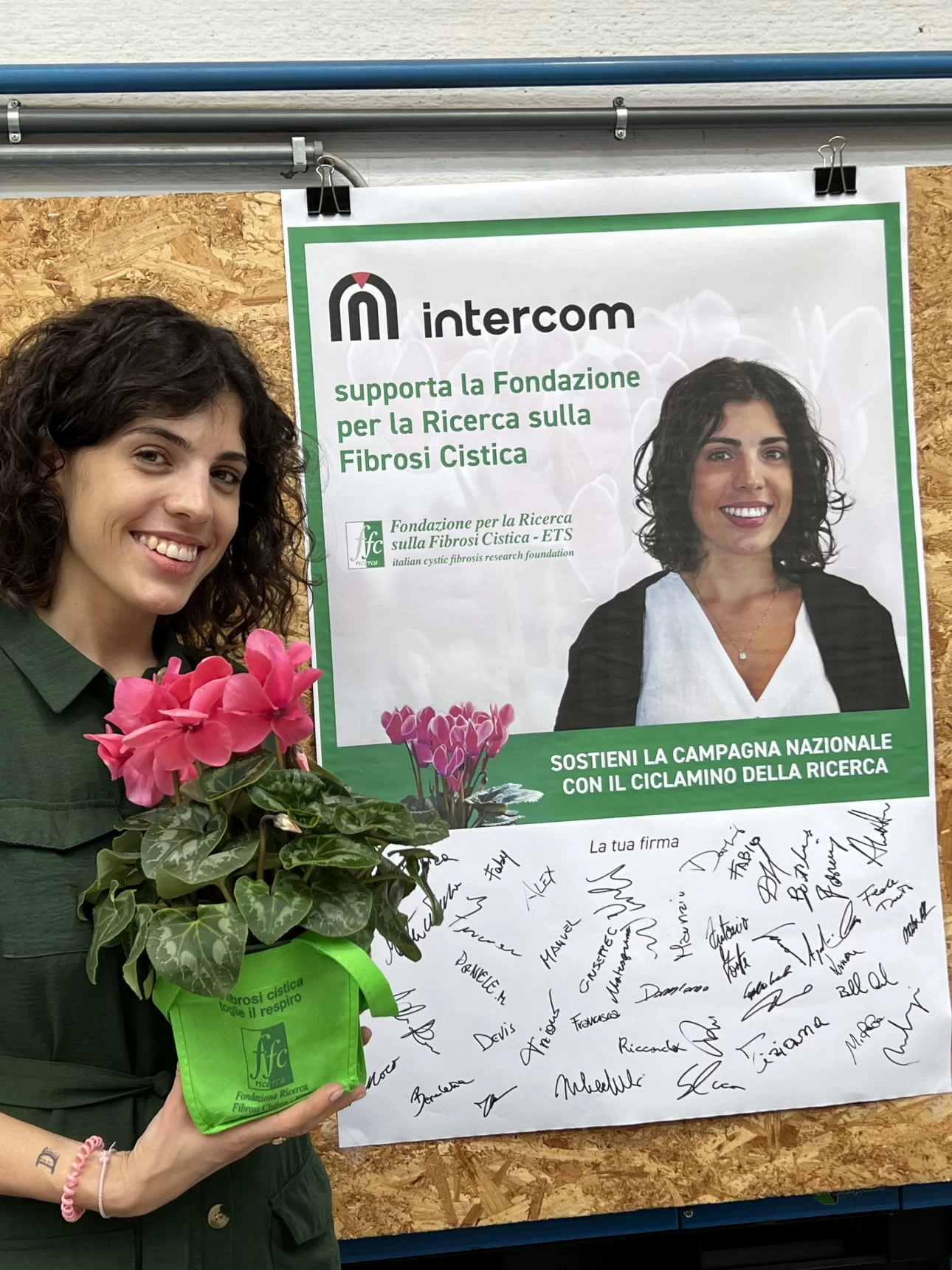We are proud to share Giorgia’s recent interview with the Italian Cystic Fibrosis Foundation, where she opened up about her personal journey with the disease and how it has shaped her experience at Intercom Facades. Her story has inspired us to take meaningful steps as a company in supporting the fight against cystic fibrosis, aligning our values with impactful actions. Giorgia’s story is a powerful reminder of how individual experiences can inspire collective efforts, and we are committed to continuing our support for this vital cause.

Giorgia, you work for Intercom Facades, which started a Corporate Social Responsibility initiative last year. Can you tell us how this collaboration came about?
It all began with my personal story. I had been working at Intercom Facades for about three or four months when I was finally diagnosed with the condition behind my persistent cough and health issues: cystic fibrosis. Everyone at the company went through that shock with me. I had to go through my first hospital stay (almost 20 days), and my colleagues saw me through even the toughest times.
Personally, I immediately felt the need to be around people who understood what cystic fibrosis was, people who were familiar with the things I was just starting to learn at 23. The Cystic Fibrosis Research Foundation and the Padua Delegation, especially Alessia, were my first real support system. Later, I started sharing my experience with the company. Everyone, from leadership to my colleagues, was extremely supportive and sensitive to what I was going through. Intercom Facades was already active in social causes, and they wanted to show their solidarity by contributing to the search for a cure for cystic fibrosis patients.
Not only did the company donate, but you and your colleagues also got actively involved. How did it feel to see that kind of personal involvement from the people you work with every day?
It was incredibly moving and completely unexpected. My colleagues showed such closeness and understanding—they immediately gathered around me, and beyond making personal donations to the National Cyclamen Campaign, they also asked me for more information about my situation and the illness. I felt truly understood and supported by their sensitivity, both towards me and the difficult situation I found myself in.


In general, why should a company take on this kind of initiative and engage its employees? What’s the added value of the Foundation?
Participating in a charity effort like the Cyclamen Campaign is a meaningful and engaging way to do good. Specifically, the Foundation stands out for its transparency: knowing there are local delegates and that the headquarters is in our region (Intercom Facades is in the province of Padua, FFC Research in Verona) provides a sense of security. Plus, the project adoption model means you know exactly where the funds are going and how they’re contributing to the cause. The medications available today, like Kaftrio, are proof that the research efforts are working. I also think it’s essential for companies to raise awareness: to educate people about the illness, to let them know that 1 in 30 people is a carrier, and that there’s a test available. After all, every company has young employees who might be thinking about starting or growing their families.
Have you ever talked about cystic fibrosis carriers or the “1 in 30, and You Don’t Know” awareness campaign at your company? Could that be an interesting way to involve more people?
Yes, I have! After the company fundraiser, I thanked my colleagues and gave them more information to get them involved, and we ended up discussing it. I even found out that some of my coworkers later got tested to see if they were carriers. I think it’s crucial to spread awareness about this test so that anyone planning to become a parent can do so with full knowledge and potentially avoid passing on this illness to a child.
How important is the connection with the Delegations or local FFC Research volunteer support groups?
Having a direct link between the Foundation and the local area is essential; it feels more personal, like you’re closer to the cause. For me, personally, it was a lifeline: having people nearby who understand your situation, being able to talk about how you’re handling medications or bad news, like Pseudomonas… Through the Delegation and other volunteers, I was fortunate enough to meet incredibly supportive people who made me feel less alone in dealing with this entirely new situation, and who I can always talk to.

What would you say to encourage other companies to get involved, or to highlight the Foundation as a partner for CSR projects?
I understand that charity stalls or ads on this topic might not always inspire trust, especially for those who are sceptical about the nonprofit sector. But organising these kinds of initiatives within a company setting is much more effective. It doesn’t feel like just another association asking for donations—you’re in a familiar environment, more open to listening, and there’s more trust. This leads to better communication and a deeper connection with the cause. It’s important for companies to get involved and choose their partnerships carefully. The Foundation’s strengths are its transparency in showing where donations go, and the positive approach of its campaigns. You genuinely feel like you’re making a difference and getting closer to the cause you’re supporting.
